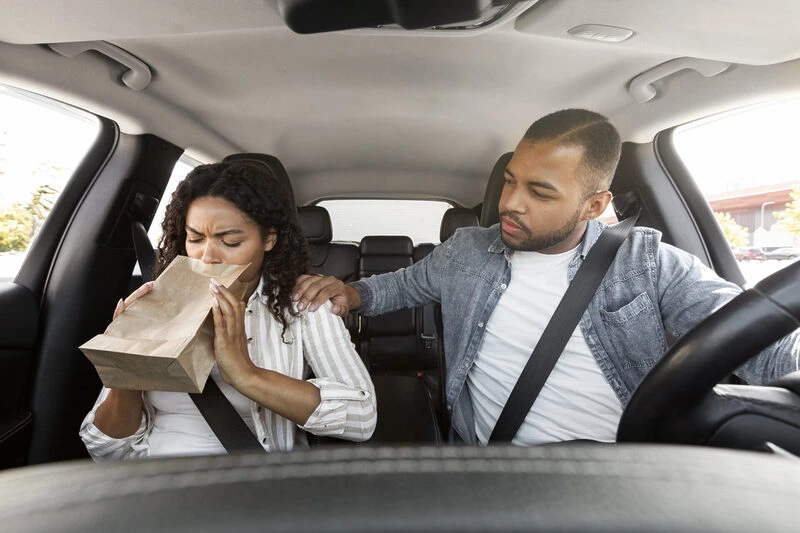Car sickness can turn a fun road trip into a miserable experience. If you’ve ever felt queasy, dizzy, or nauseous while traveling, you’re not alone. Car sickness happens when your brain gets mixed signals from your eyes and inner ear. The good news is that there are ways to prevent it. In this post, I’ll share practical tips to help you avoid car sickness and enjoy your journey.
What Causes Car Sickness?
Car sickness, a type of motion sickness, occurs when there’s a disconnect between what your eyes see and what your inner ear senses. When you’re in a moving car, your inner ear detects movement, but if you’re focused on something stationary like a book or your phone, your eyes don’t register the same movement. This confusion can lead to symptoms like nausea, sweating, dizziness, and even vomiting.
Tips to Prevent Car Sickness
1. Sit in the Front Seat
Sitting in the front seat of the car can help reduce car sickness. This position allows you to see the road ahead, which helps your brain align what your eyes see with what your inner ear senses. The less your body feels the motion, the less likely you are to get sick.
2. Focus on the Horizon
Looking at the horizon can also help. Keeping your eyes on a stable point in the distance helps your brain understand the car’s movement, reducing the confusion between your senses. Avoid looking at moving objects or reading while in motion, as this can make symptoms worse.
3. Get Fresh Air
Fresh air can work wonders in preventing car sickness. Open a window or use the car’s air vents to circulate air. Breathing deeply can also help calm your stomach and reduce nausea.
4. Avoid Heavy Meals Before Traveling
Eating heavy, greasy, or spicy foods before a car ride can increase the chances of feeling sick. Instead, opt for a light meal or snack before your trip. Some people find that eating small amounts of dry crackers or ginger can help settle their stomach.
5. Stay Hydrated
Drinking water throughout the journey helps keep nausea at bay. Avoid alcohol and caffeine, as they can dehydrate you and make symptoms worse. Sipping on water or a light beverage can help keep your stomach calm.
6. Use Over-the-Counter Remedies
If you’re prone to car sickness, consider using over-the-counter remedies like Dramamine or Bonine. These medications can help prevent nausea if taken before the journey begins. Always follow the instructions and consult a doctor if needed.
7. Take Breaks
If your trip is long, make sure to take regular breaks. Getting out of the car to stretch your legs and breathe in some fresh air can help reset your senses and reduce the risk of car sickness.
What to Do If You Start Feeling Sick
Sometimes, despite your best efforts, car sickness can still hit. If you start to feel unwell:
- Stop the Car: If possible, take a break from driving and get out of the car for a few minutes.
- Close Your Eyes: Resting your eyes can help reduce the conflicting signals your brain is receiving.
- Try Acupressure: Some people find relief by pressing on the acupressure point on the inside of the wrist.
Conclusion
Car sickness doesn’t have to ruin your travels. By following these simple tips, you can enjoy a smoother, more comfortable ride. Remember, everyone is different, so it might take some time to find what works best for you. Safe travels!

